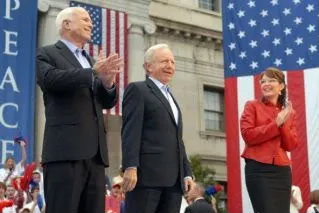Ten of the last twenty presidents, dating back to 1900, have been forced from office or come close: one was forced to resign (Nixon), one was impeached (Clinton), two were assassinated (Kennedy and McKinley), one was shot (Reagan), one was shot at twice in three weeks (Ford), two died in office of natural causes (FDR and Harding), one was incapacitated by a stroke (Wilson), and one nearly died of a massive heart attack (Eisenhower). If you go back to the 19th century, the record unsurprisingly gets worse. As for vice presidents since 1900, not only have five taken office (Ford, LBJ, Truman, Coolidge and Teddy Roosevelt), but four others have been nominated for the presidency while sitting (George H.W. Bush won, Richard Nixon lost and then won later, and Hubert Humphery and Al Gore lost – with Gore and Nixon losing two of the closest races in history and Humphery losing a tight three-way race), and one other (Walter Mondale) was nominated four years later. Losing vice presidential nominees have mostly not gone on to better things, but a few have – FDR came back to win the presidency 12 years later, Earl Warren became Chief Justice of the Supreme Court five years later, Bob Dole was nominated for the presidency 20 years later, and Lloyd Bentsen moved laterally to become Treasury Secretary five years later. Others, like Sarah Palin and Joe Lieberman, saw their national profiles greatly raised by the experience; Lieberman, Edmund Muskie and John Edwards all ran presidential campaigns four years later, with varying degrees of impact on the race.
All of which is a way of saying that Mitt Romney’s choice of a running mate could have very important repercussions whether or not that choice makes much impact on the outcome of the 2012 election. Romney seems to be a man of unusual health, vigor and personal ethics, and so less likely than most to leave the Oval Office before his term is out if he’s elected, but he’s also 65 years old; things happen. Given that the outcome of the election remains uncertain, we should therefore be rightly concerned with his choice. Let’s take a look at a couple of the considerations on the table, and why I ultimately think Paul Ryan is the best choice under the circumstances.

